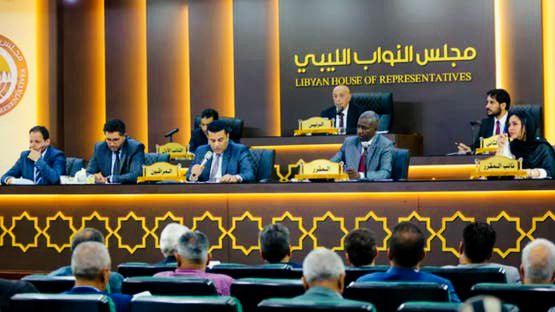In a move that reflects the depth of the political and institutional division that Libya is suffering from, a number of parliament members representing the western region were banned from traveling to the city of Benghazi to participate in a general session held by the parliament today, Monday, to discuss the draft general budget law for the year 2025.
The session, which is held in the city of Benghazi in the east of the country, was supposed to discuss the budget proposed by the Planning and Finance Committee of the House of Representatives, which amounts to 160 billion Libyan dinars.
The budget items were distributed as follows:
64 billion dinars for salaries
13.9 billion dinars for operational expenses
27.5 billion dinars for development projects
54.6 billion dinars for subsidies.
However, this vital session faces a major challenge after Misbah Doma, the second deputy to the parliament president, announced that the Civil Aviation Authority prevented MPs from the western region from traveling via Mitiga International Airport in the capital, Tripoli, to Benghazi.
Doma pointed out that this ban prevented them from participating in the legislative session, which he considered "an infringement on the freedom of parliamentary work".
In an official statement issued yesterday evening, Doma called on the Attorney General to open an urgent investigation into the incident and hold those responsible accountable, demanding the necessity of facilitating the movement of MPs and enabling them to perform their duties freely and independently, away from any political or administrative interference that hinders the legislative process.
These developments highlight the ongoing intensity of the disputes between the authorities in eastern and western Libya, especially regarding the management of financial resources and the distribution of influence, despite repeated international and local calls to reach a unified budget subject to oversight and auditing, ensuring the reduction of corruption and unnecessary spending amid a suffocating economic and financial crisis the country is experiencing.
It is worth mentioning that this budget is allocated for the Stability Government headed by Osama Hamad, which faces political challenges related to its legitimacy and the position of some parties in western Libya towards it, deepening the state of division and delaying opportunities for reaching a comprehensive national settlement.

